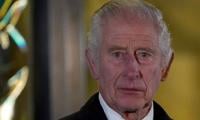WASHINGTON: The very first high-level contact between the Trump administration and the new government in Pakistan on Thursday turned controversial when Islamabad called the statement issued by the State Department about the phone call between Secretary of State Mike Pompeo and Prime Minister Imran Khan "factually incorrect."
Foreign Minister Shah Mehmood Qureshi and Foreign Office spokesperson questioned the substance of the read-out issued by the State Department and said that the telephonic conversation between Pompeo and Khan did not mention terrorists operating in the country.
"Pakistan takes exception to the factually incorrect statement issued by US State Dept on phone call btwn PM Khan & Sec Pompeo," the Foreign Office Spokesman Dr Muhammad Faisal wrote on Twitter saying, "There was no mention at all in the conversation about terrorists operating in Pakistan. This should immediately be corrected," he said. Qureshi told reporters that Pompeo would arrive in Islamabad on September 5. The US State Department, in return, asserted that it stands by its read-out adding that the two leaders had a "good call" and a "good discussion."
Earlier, the Secretary of State had phoned Imran Khan, four days after the Prime Minister took oath of office, to felicitate him on heading the new government. "Secretary Pompeo expressed his willingness to work with the new government towards a productive bilateral relationship," the State Department's short statement, sent out after the call was made, said. The read-out also said, "Secretary Pompeo raised the importance of Pakistan taking decisive action against all terrorists operating in Pakistan and its vital role in promoting the Afghan peace process."
During the official press briefing, the State Department spokesperson was asked that the Foreign Office in Islamabad has rejected the substance of the statement asking to correct it. The spokesperson maintained that the department stands by its original readout.
"In the readout the Secretary notes that he spoke with the new prime minister and expressed his willingness to work with the new government towards a productive bilateral relationship," she said adding, "My understanding is that the beginning of the call or the call itself was a good call and a good discussion towards our working with the new government and the new administration."
"Pakistan is an important partner to the United States. We hope to forge a good productive working relationship with the new civilian government," she further said.
Answering a related question, she repeated that the Secretary had a good initial call and "we will have more on that in the days and weeks ahead."
The Trump administration had already announced that it looks for opportunities to work with the new government to promote peace and prosperity in Pakistan and the region. The administration officials have appreciated Prime Minister Imran Khan's statement on the importance of peace on both the sides of Pak-Afghan border. The administration wants Pakistan to help bring the Taliban to negotiation table which could stabilise Afghanistan. US Principal Deputy Assistant Secretary for South and Central Asian Affairs Alice Wells urged Pakistan earlier this week to play its critical role. "We encourage Pakistan to take stronger steps to ensure that the Taliban come to the negotiating table rather than enjoying safe havens in the country. Both Pakistan and Afghanistan embarked on an effort to improve their ties for negotiating a solidarity document which we strongly support," she had said.
Agencies add: Foreign Minister Shah Mehmood Qureshi also said on Friday that the US State Department's read-out was 'contrary to facts'.
The foreign minister in his press conference at the Foreign Office said that he directed the foreign secretary to issue an immediate rebuttal over the statements issued from the Washington DC.
"Secretary of State Mike Pompeo in his conversation with the prime minister said he wanted a constructive and productive relationship. I am looking forward to his visit and engaging with him for peace and stability, the areas where both countries stand to gain," the foreign minister added.
Qureshi confirmed that Pompeo will arrive in Islamabad on September 5.
"We don't share the same cordial relations with the US as we had before in the past. The US authorities have to understand Pakistan's view," he said. "I believe that the meeting between Prime Minister Imran Khan and US Secretary of State will be very important."
"We have a longstanding bilateral relationship with the US which has had its ups and downs. This is an important bilateral relationship. In order to bring relations with the US to a past level, there is a need to understand the situation and needs in Afghanistan," he added.
The foreign minister reiterated that Pakistan will have to make the US understand its genuine reservations over certain policy matters. Qureshi outlined the country’s foreign policy objectives and guidelines in a world which had changed since the last time he held this post. “Realignments have taken place and we need to understand them. Pakistan is no longer the darling of the west that it used to be,” he asserted.
On Pak-India relations, he said, “It takes two to tango.” The foreign minister stressed that dialogue was essential for relations between Pakistan and India to move forward. He said, “We are not shy of engagement."
Qureshi said in his first speech, the prime minister made it clear that “if you [India] take one step forward we will take two. We need positive signalling.”
Qureshi also thanked India’s external affairs minister for sending him a congratulatory letter but emphasised that “you need two to tango.”
“I want to ask the Indian foreign minister if there is any other option than dialogue. In my opinion, there isn’t. When there is dialogue, regardless of the progress, the climate is improved,” he said.
The foreign minister added that everyone was aware that Kashmir was a core issue, but there were other issues such as the water crisis which needed to be discussed between the two South Asian neighbours.
Foreign Minister Qureshi said peace in Afghanistan was essential for Pakistan. “The Afghan president has pointed towards a peace process and we have to see how Pakistan can help in this process,” he said.
Qureshi said that as per the directives issued by the prime minister on the austerity drive, he has decided to not stay in five-star hotels during foreign official trips.
"I will try to stay in our embassies wherever possible. The foreign minister has the legal authority to travel first class but I will not do this and will prefer business class travel. We will try to avoid big delegations and have limited entourage," he said.
The foreign minister said that in view of curtailing unnecessary travel abroad, no minister or secretary will be allowed to travel abroad without the permission of the prime minister.
“We should try to save as much foreign exchange as possible. The objective of this is to evaluate what will be the benefit of travelling abroad to Pakistan. If there is no need to travel abroad it should be avoided," the foreign minister said.
The foreign minister spoke of how Pakistan could use international forums to its benefit. He said Saarc is an important forum and Pakistan considered this a good vehicle for regional cooperation. “Unfortunately we have not benefited from it like we should have.”
Qureshi added that while there were several opportunities in the European Union for trade, Pakistan was unable to benefit from the GST plus opportunity.
Foreign Minister Qureshi said Pakistan also needed to look towards Africa. “I have to admit that in the past we have not concentrated on Africa. Today there are several opportunities there. If we are to achieve growth we need to explore African markets.”
When asked why Prime Minister Imran Khan was not attending the UNGA session, Qureshi replied that the prime minister was focusing on internal challenges.
Qureshi told reporters that Pakistan was on the grey-list of the Financial Action Task Force (FATF), stating that this was not the first time the country was placed on it. The foreign minister said he would be speaking with former Finance Minister Dr Shamshad Akhtar and seek details from her on the progress and steps Pakistan needed to take to be removed from the list. “I do not want Pakistan to be placed on the blacklist,” he asserted.
The foreign minister said that his ministry was the first line of defence for Pakistan and there was a need to strengthen it. He added that the prime minister had said that the foreign ministry needed to be more functional than before.
He said, “This government will take foreign policy and engagements seriously.”
He further said that the spokesperson’s office would also be strengthened and there would be better communication with the media for improved narrative building. The foreign minister gave the example of India and how the media there and foreign ministry would work closely in narrative building.
In the press conference, the foreign minister said approximately 9.2 million Pakistanis overseas were happy because their demand for voting was becoming a reality.
He said, “It is my wish that the overseas Pakistanis should be used for the benefit of Pakistan. They should lobby for the country. I want them to help us and help share the burden of our country. I want to give them importance in my interactions.”
The foreign minister informed reporters that his counterparts from China, Iran and Japan would be visiting Pakistan. He said that the Foreign Minister of Iran Javad Zarif had sent a message to visit Pakistan on August 30-31. “We will welcome the Iranian Foreign Minister on his Pakistan visit,” Qureshi said.
On tensions between Tehran and Washington, the foreign minister said: “Iran is a neighbour of Pakistan and we share a large border with them. We want a peaceful stable border.”
Qureshi also spoke of the upcoming visit of the Chinese Foreign Minister to Pakistan who was expected to arrive in the country on September 8. The foreign minister stressed on the importance of the China Pakistan Economic Corridor (CPEC) and Pakistan’s historic friendship with China during the press conference.
According to Qureshi, his Japanese counterpart was also expected to visit Pakistan at the end of August.
Kasuri urged authorities of Pakistan and China to pull their resources to defeat forces seeking to disrupt the...
IHC said that several people had not returned the cipher copies they had, and asked if it meant it was right for the...
Gilani gave floor to Leader of Opposition Syed Shibli Faraz, who insisted that with unity they could take country...
Match witnessed intense action and dramatic twists, keeping fans on the edge of their seats until the final ball
Apex court bench was reconstituted after Justice Yahya Afridi recused himself from hearing the case earlier this month
ECP issued a notification in this connection pursuant to orders passed by LHC







